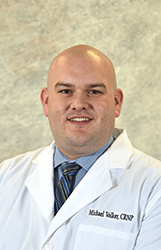Diabetic Retinopathy is the most common diabetic eye disease and can lead to vision loss, but early detection may help reduce the severity of the disease. All people with diabetes, Type 1 or Type 2, are at risk for diabetic retinopathy. To identify problems, diabetics should have yearly eye exams/screenings as a part of your diabetes management. We are now offering the screening for Diabetic Retinopathy in office. Please schedule your appointment today.
Author Archives: Trudy
Will My Child Be Safe at School?
BY: ANDREA C. CUNIFF, M.D.
Maryland children are finally returning to the classroom. This is welcome news for most families, but some parents wonder whether their kids will be safe from COVID-19 at school.
Maryland schools are taking precautions to protect children and staff members, including social distancing, mask wearing, limited class size and stepped-up cleaning. So as reported in Maryland School Reopening Guidance from the Maryland Department of Education, schools are pretty safe when it comes to the coronavirus. Here are some highlights from the report:
-
- Many fewer children have been infected with COVID-19 than adults.
- Children are less likely to become infected than adults.
- Children under 10 appear to not spread the virus as much as adults.
- Children generally have milder cases of the disease and lower rates of hospitalization.
- Spread of the virus in schools is uncommon when prevention strategies are used effectively.
- When Covid-19 does spread in schools, it is much more likely to be between staff members than between staff and children.
- From Aug. 10, 2020 to Jan. 10, 2021, only 4.3% of persons 19 years or younger who got COVID-19 said they had attended or visited in a pre-K-12 school. That means most were not infected at school.
- Maryland has prioritized vaccination of educators and staff in all K-12 schools. This is underway now.
See public and non-public K-12 schools that have reported Covid-19 cases
While schools are taking precautions, you should remind your children to protect themselves with these safe practices:
- Stay separated (at least three feet, according to the latest CDC guidance): This includes not bunching up while standing in line, leaving space between seats at lunch, and not getting too close to others at recess.
- Wear face masks: This should be a priority, especially when it’s hard to maintain social distance, such as on the bus or entering the school building. Wear cloth masks or the disposable medical face masks that are now widely available at grocery and drug stores.
- Give your child a clean mask and back-up mask each day and a clean, resealable bag for them to store the mask when they can’t wear it, such as at lunch.
- Keep hands clean: Practice hand-washing at home with your child: soap and water for at least 20 seconds. Encourage them to wash before and after eating or after coughing/sneezing. If hand washing isn’t available, use hand sanitizer.
- Stay home if sick: Children should stay home if they have tested positive or are showing any COVID-19 symptoms:
- Fever or chills
- Cough
- Shortness of breath or difficulty breathing
- Fatigue
- Muscle or body aches
- Headache
- Loss of taste or smell
- Sore throat
- Congestion or runny nose
- Nausea or vomiting
- Diarrhea
 Dr. Andrea C. Cuniff earned her medical degree at the University of Maryland School of Medicine and is certified by the American Board of Family Medicine. She sees patients in the Annapolis office.
Dr. Andrea C. Cuniff earned her medical degree at the University of Maryland School of Medicine and is certified by the American Board of Family Medicine. She sees patients in the Annapolis office.
2021 Allergy Forecast: A Bad Year for Everyone?
BY: MICHAEL VOLKER, CRNP
Like taxes, allergy season is one of those things you just can’t avoid. In fact, due to climate change, it may be getting worse. Warmer temperatures lead to more pollen production, so 2021 may be the most intense allergy season yet. And due to COVID-19 quarantine, children may especially have a rough year.
When is allergy season?
It starts in the spring and continues until the fall, but different allergens, the substances that trigger allergies, appear at different times.
March and April: As spring begins, tree pollen is the top allergen, followed by weeds and grasses. In some parts of Maryland, it’s not unusual to see cars covered by the itchy stuff.
May to July: In May, all the trees, grass and weeds gang up to pump out allergens, making it a bad time for allergy sufferers. This is the start of peak allergy season, which continues until July.
July to September: Enter ragweed, a common flowering plant. Ragweed is the leading cause of seasonal allergies, with 75% of all sufferers allergic to it.
October: With temperatures falling and plants starting to go dormant, the air starts to clear, bringing an end to outdoor allergy season. Now it’s possible to breathe a sigh of relief without coughing.
See the Interactive Allergy Forecaster for allergy conditions where you live.
COVID-19 and children’s allergies
Many children have been quarantined for the past year, with limited time outdoors. Now that they’re starting to return to their regular routines, you may notice they’re sneezing, coughing and rubbing their eyes more than they have in past allergy seasons. This may be because spending a year indoors has made them more sensitive to allergies.
Children need some exposure to allergens for their immune systems to learn how to fight them. Since many kids have had limited exposure to outdoor allergens for a year, they may have stronger allergic reactions than they had in the past.
Surviving allergy season
The best thing for both adults and children to do is minimize your exposure to allergens. Try not to go outside when the pollen count is high. Use the Interactive Allergy Forecaster to see what allergy conditions are in your area and get forecasts for tree, grass and ragweed pollen. Other things to try:
- If you have pets, keep them in the house on high-pollen days. Pollen may stick to their fur and end up in your nose.
- Change your AC filters regularly and consider getting a HEPA air filter to strain allergens out of the air in your home.
- Use over-the-counter allergy medicines to relieve symptoms: antihistamines to relieve your itchy nose and sneezing, and decongestants to get rid of your stuffy nose.
- On high pollen days, change your clothes when coming in from outside.
- Keep windows and doors closed to reduce pollen entering the house.
If your or your child’s allergy symptoms are severe or continue a long time, your health care provider may be able to help or refer you to an allergist.
 Michael Volker, Certified Registered Nurse Practitioner, received his Master of Science in Nursing degree from Walden University and is certified by the American Academy of Nurse Practitioners. He sees patients in the Arundel Mills office.
Michael Volker, Certified Registered Nurse Practitioner, received his Master of Science in Nursing degree from Walden University and is certified by the American Academy of Nurse Practitioners. He sees patients in the Arundel Mills office.
I Recovered From COVID-19. Why Am I Still Sick?
BY: VICTOR M. PLAVNER, M.D.
Some people have recovered from COVID-19, but months later they still have symptoms such as shortness of breath, weakness, a racing heart and trouble thinking.
If you are one of these unfortunate “long haulers,” you may continue to be sick even though you have recovered and tested negative for SARS-CoV-2, the virus that causes COVID-19. Most people who get the disease make a full recovery, but it’s estimated that 10%-30% of patients continue to experience symptoms months after their initial diagnosis.
Anyone can be a long hauler
Even young people and those who had only mild cases are affected. About one in five young adults reports prolonged problems, and some people who were never hospitalized can’t climb stairs, get winded easily, and need oxygen for shortness of breath.
Doctors aren’t sure what causes these drawn-out symptoms, but an inflammatory response may be responsible. COVID-19 makes your body’s disease-fighting antibodies overreact, attacking healthy cells and damaging tissues and organs. If this inflammatory response continues, the outcome could be “long Covid” that lasts for weeks or months.
First steps toward treatment
It is not yet well understood how to treat long Covid, but anti-inflammatory drugs may be one answer. Also, doctors are finding that a program of rehabilitation can help. People with lingering fatigue can benefit from gradual exercise, including breathing exercises to increase lung capacity. And those with cognitive issues can recover with the help of a neuropsychologist. Ask your doctor about possible treatment plans.
Since COVID-19 is a relatively new disease, its long-term health effects aren’t fully understood. One thing is certain, however: the best way to avoid complications is to prevent COVID-19.
Common ‘long Covid’ symptoms
If you continue to suffer any of these symptoms after recovering from Covid-19, you may be a Covid long hauler:
- Cough
- Fatigue
- Joint and chest pain
- Shortness of breath
- Headaches
- Muscle pain
- Changes in smell: food may smell bad
- Confusion, forgetfulness, trouble concentrating
 Dr. Plavner is a Maryland Primary Care Physicians, LLC partner, and practices at the MPCP Arnold office. He earned his medical degree at the University of Louvain, Brussels, Belgium; and at George Washington University Medical Center.
Dr. Plavner is a Maryland Primary Care Physicians, LLC partner, and practices at the MPCP Arnold office. He earned his medical degree at the University of Louvain, Brussels, Belgium; and at George Washington University Medical Center.



